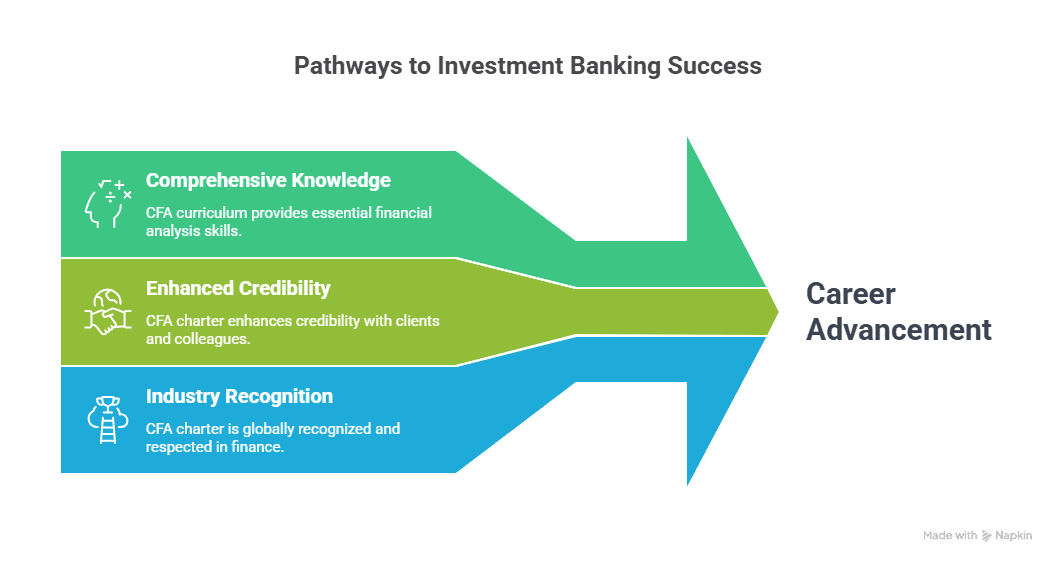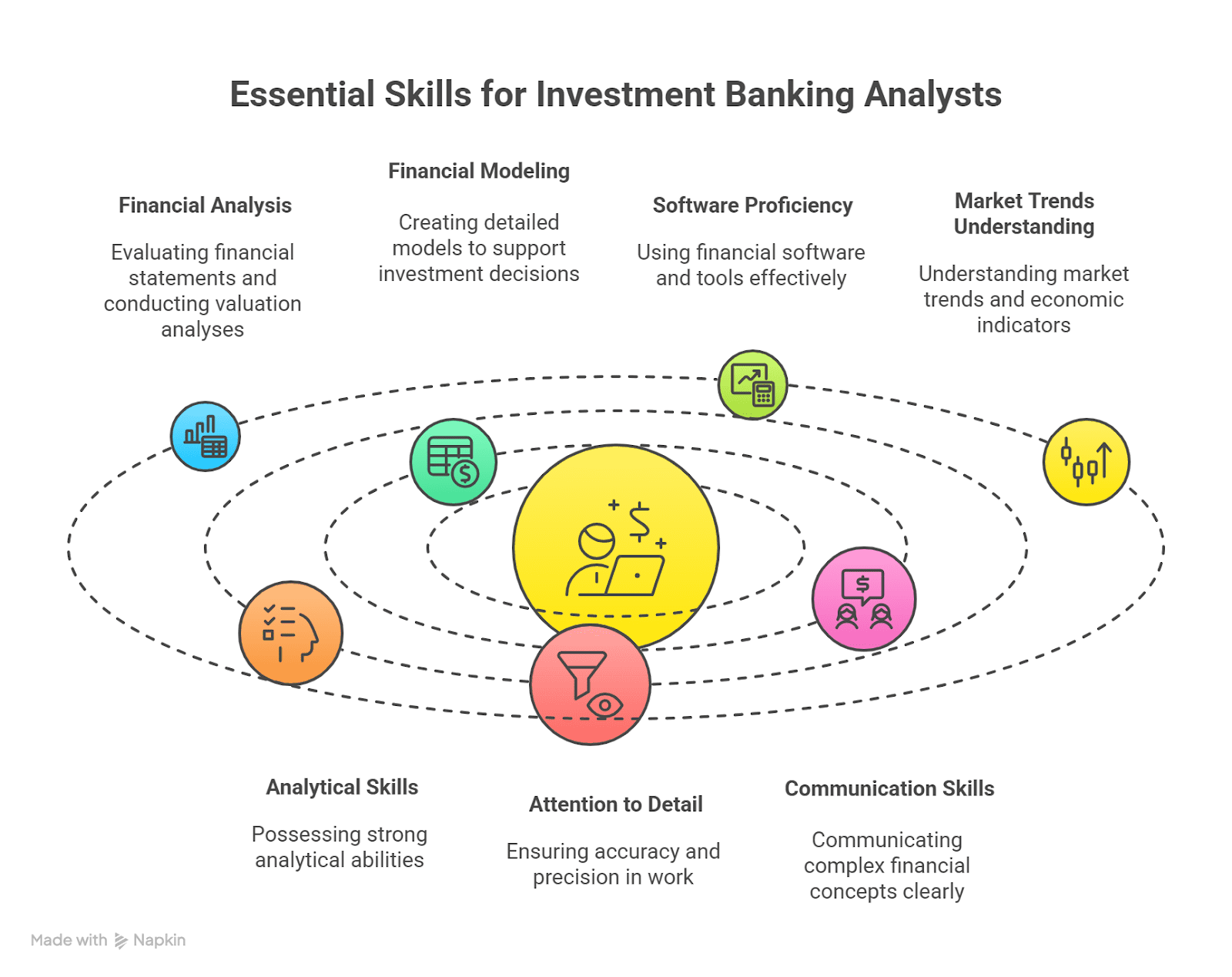In today’s competitive finance environment, investment banking certification is not only a plus—it is essential to your career. With the markets of the world becoming more complicated and linked together, companies expect professionals not only to be theory-savvy but work-ready as well. From graduate to experienced finance professional who seeks career growth, the certification can be your ticket to opportunities and turbo-charged career development in the investment banking field.
The right investment banking certification fills the gap between class and off-class experience, puts you in a better position in placement rounds, and makes you more likely to attain high-earning careers.

Why Choose a Career in Investment Banking?
Investment banking is the most lucrative of all the career choices available in the financial sector. With investment banking, there is high pay, access to global markets, and an opportunity to deal with high-weight clients for mergers, acquisitions, and capital raising transactions.
As there is a larger need for professionals who possess knowledge of complex financial products and processes, never has the moment been better to seek finance career prospects.
How Certification Impacts Investment Banking Job Prospects?
A certification in investment banking ensures that you possess working specialist knowledge and functional knowledge. Placement agencies also shortlist certified candidates first before others during campus recruitments. The right course also helps you:
- Receive respect from overseas employers
- Gain knowledge about banking firm’s techniques and tools
- Increase your chances of clearing interview stages
A finance course with placement also assures employment, giving you a safe path on course completion.
Top Skills Needed for Investment Banking
Today, recruiters ask for more than the usual degrees. They would want the candidates to come along with technical as well as soft skills like:
- Risk management
- Trade settlement & compliance
- Wealth & asset management
- Anti-money laundering
- Ethical banking practices
Investment banking certification properly structured like CIBOP enables all of these to be developed.
Exploring the Best Investment Banking Certification
Certified Investment Banking Operations Professional (CIBOP) by Imarticus Learning is the most sought-after 0–3 years experience certification.
Why CIBOP stands out:
- 100% job guarantee
- 7 interview guarantees
- 1200+ batches completed
- Avg. salary of ₹4 LPA
- Highest paying salaries of ₹9 LPA and more
- 1000+ placement partners
It is the number one investment banking placement-ready certification.
Placement Benefits of CIBOP by Imarticus
One of the best things to keep in mind when choosing investment banking placement is that there is no other program that can replace a program that provides genuine placement. CIBOP assures:
- Interview preparation & CV writing
- Soft skills & domain knowledge
- Career advice
- Access to more than 1000 hiring partners
Since Imarticus wins Best Education Provider in Finance at 30th Elets World Education Summit 2024, you are being taught by the best.
Career Roles You Can Target
You can become a candidate for the following jobs through an investment banking certification:
- Investment Banking Associate
- Wealth Management Associate
- Risk Management Consultant
- Regulatory Reporting Analyst
- Hedge Fund Associate
- KYC Analyst
- Client Onboarding Associate
- Trade Surveillance Analyst
These jobs are most likely to be targeted in Indian and international markets and give faster career growth.
Real Industry Projects That Build Practical Skills
Practice makes perfect. CIBOP uses a project-based method in which students tackle real cases like:
- Trade-based money laundering
- Compliance violations
- Ethical banking conundrums
- Real investment banking transactions
These real projects hone skills and confidence—precisely what recruiters are seeking.
Why Employers Priorities Certified Candidates
Recruiters frequently use certifications to shortlist candidates with speed. A known investment banking certification indicates that:
- You grasp intricate monetary systems
- You’re trained in global standards
- You are ready to contribute from Day 1
Moreover, it also increases your visibility to employers who are actively hiring for critical roles in finance.
Is Investment Banking Right for You?
If analytical thinking, acuteness to details, and interest in financial matters are your forte, this profession is your sure-shot ticket. This job is not the sole preserve of crème de la crème IIT/IIM passouts. Even freshers with proper certification can start this profession.
Whether you wish to specialise in finance career positions in India or go abroad from India to the international market, CIBOP equips you with the knowledge and the skill set to do so.
FAQs
1. What is the average salary after completing CIBOP?
Average salary is ₹4 LPA, and the highest salary is around ₹9 LPA depending on experience and performance.
2. Is the certification recognised by employers?
Yes. Imarticus Learning is a 1000+ hiring partner finance education brand with high credibility.
3. Do I need finance experience before enrolling?
No, the course is for freshers as well as early professionals with 0–3 years of experience.
4. What kind of roles can I apply for after this certification?
Job roles are KYC Analyst, Investment Banking Associate, Client Onboarding Analyst, etc.
5. What is the duration of the course?
You have 3-month or 6-month plans, as required.
6. Are the interviews guaranteed?
Yes. You will be guaranteed 7 interviews on course completion.
7. How does the CIBOP course compare to an MBA?
CIBOP is niche, to-the-point, up-to-date, and industry-specific—best suited for faster placement than a generic MBA.
Conclusion
Your investment banking career can be made easier with proper certification. Imarticus’s CIBOP program is not merely an investment banking certification, but a career platform offering placement assistance, live projects, and interaction with best-in-class employers.
In a saturated job market, make sure that you are the one who gets attention—either because of the right certification, skills, or platform.








 What is Money Laundering?
What is Money Laundering?